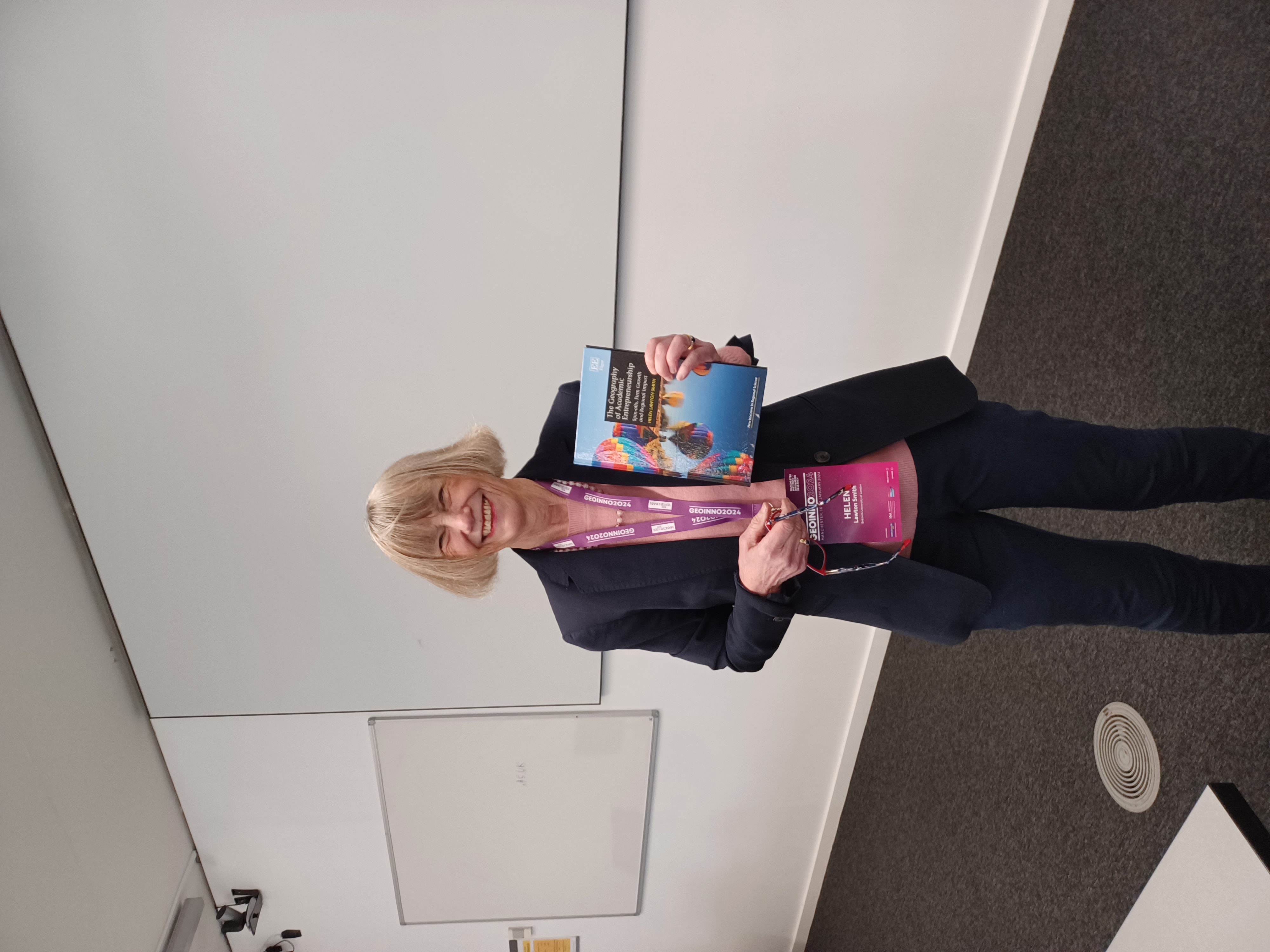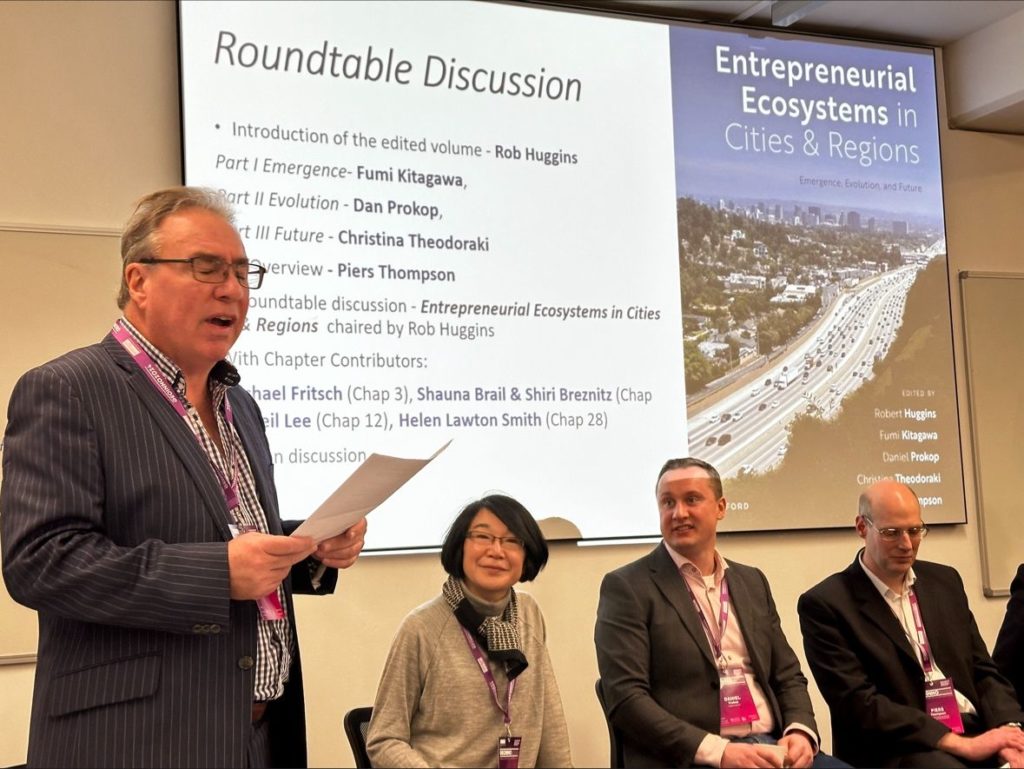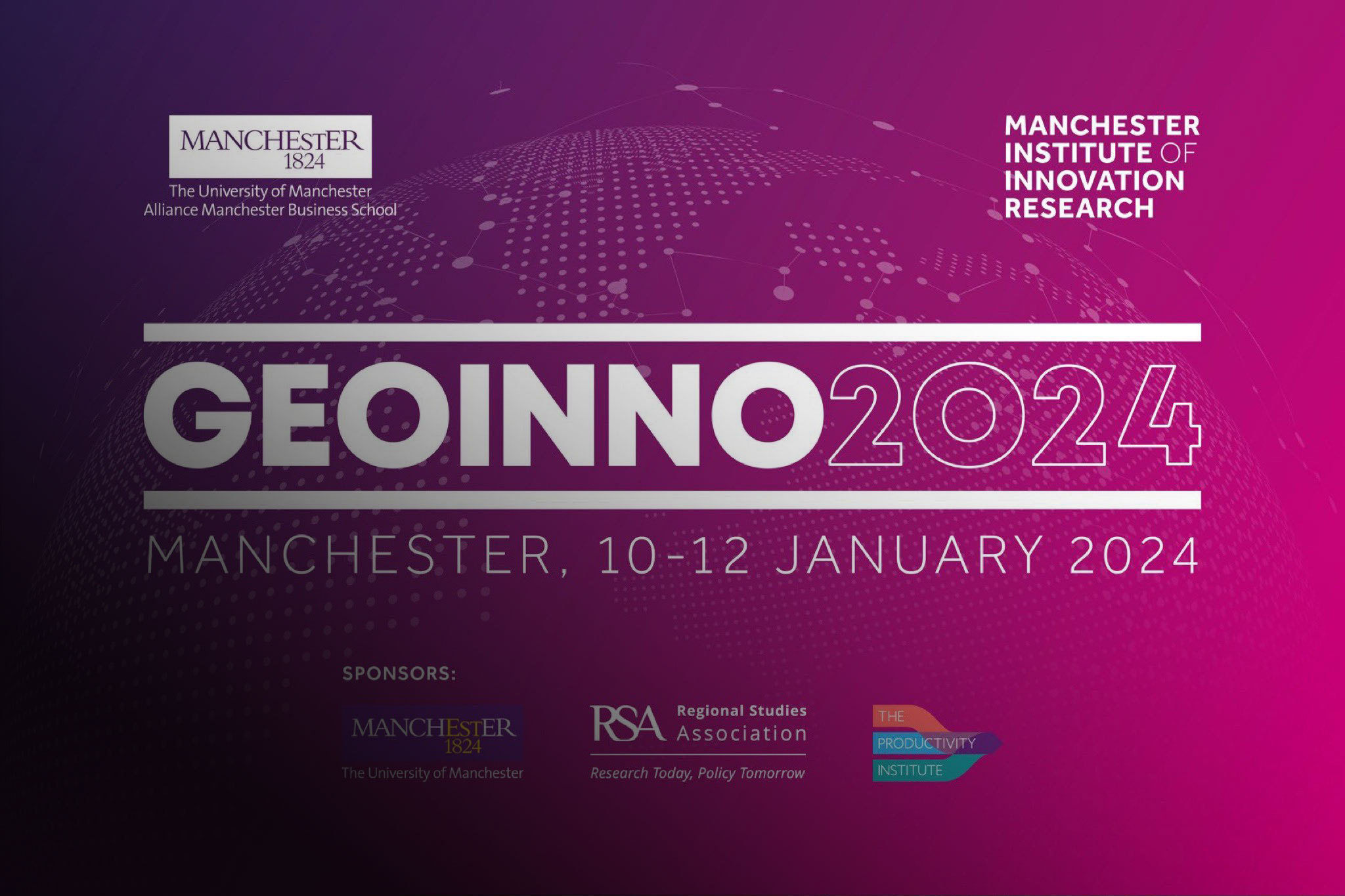In the heart of Manchester, CIMR proudly marked its presence at the recent GeoInno2024 conference, held from 10th to 12th January 2024.
The event, organized by The Manchester Institute of Innovation Research at the Alliance Manchester Business School, University of Manchester, proved to be an invaluable platform for scholars and practitioners interested in unravelling the intricate spatial dimensions of innovation activities. This blog reviews the highlights from our CIMR members joining the event’s sessions.
Helen Lawton Smith’s Insightful Sessions:
Our esteemed Director, Helen Lawton Smith, took part as a speaker in the session titled ‘The Geography of University Entrepreneurial Ecosystems: Actors, Outcomes, and Evolution 1 .’ Helen captivated the audience with her insights into the changing role of universities in the geographies of inclusive entrepreneurial ecosystems.
Later in the day, she was invited to participate in Roundtable session “Entrepreneurial Ecosystems in Cities and Regions“. She reflected on her work with the OECD presented in the book: Chapter 28 ‘Applying the Entrepreneurial Ecosystem Concept to Regional Entrepreneurship Policy Analysis.’ Her contribution not only demonstrated her scholarly prowess, but also underscored CIMR’s commitment to advancing cutting-edge research in the field of innovation management while collaborating with and contributing to international policy communities.
To top it off, during the conference, Helen presented her latest book, ‘The Geography of Academic Entrepreneurship. Spin-offs, Firm Growth and Regional Impact’, a must-read for those interested in the connection between university spin-offs and regional economic development. This book builds on previous studies and on changing government agenda both to explore the relationship between the formation and growth process of university spin-offs and to study their links with regional development. Key features of the book are the positioning of the academic spin-off process within different geographical contexts, its focus on methodology including highlighting the diverse range of concepts and associated methodologies that have been utilised to explain spin-off processes, and extensive evidence from around the world.


Dr. Fumi Kitagawa’s Multi-Scalar Entrepreneurial Ecosystem Perspectives:
CIMR member Professor Fumi Kitagawa, Chair in Regional Economic Development, City-REDI, University of Birmingham, organised the Roundtable session “Entrepreneurial Ecosystems in Cities and Regions: Emergence, Evolution and Future” an edited volume to be published by Oxford University Press very soon.
The book consists of 28 chapters and over 60 contributors highlighting diverse geographical contexts shaping the entrepreneurial ecosystem.
As well as introducing the book with her co-editors, Fumi shared insights from her co-authored chapter, titled ‘Policy Impacts on Innovation and Entrepreneurial Ecosystems: Evolutionary and Multi-Scalar perspectives from Japan.’ Drawing on the analysis of policy changes over time, she provided valuable insights into the nuanced impacts of policies on innovation and entrepreneurial ecosystems in Japan.

Fumi was one of the special session organisers on the university entrepreneurial ecosystems, and presented her work in ‘The Geography of University Entrepreneurial Ecosystems: Actors, Outcomes, and Evolution 3’ with her co-authors: ‘Devolution, Regional Policy and University Entrepreneurial Ecosystems: Perspectives from Devolved Regions in the UK’.
Milica Bozanic’s Impactful Research:
Birkbeck alumna Milica Bozanic made us proud by presenting her master’s dissertation during the session ‘The Geography of Creative Activities and Industries.‘
Milica’s dissertation, from the MSc course in Management and Creative Industries at Birkbeck, focused on ‘Economic Incentive Policies Impact on the Development of the National Film Industries in the Low Audiovisual Capacity Countries: The Hollywood Effect in Central and East Europe.’ Her research not only provided insightful data analysis from landlocked countries but also raised thought-provoking questions about the impact of economic incentives on national film industries. Milica’s findings uncovered the positive association between film incentives and industry growth, emphasizing their role in attracting new financial sources.
GeoInno2024, not only served as a platform for intellectual exchange but also showcased the vibrant intersection of academia and practical insights. Our members involvement exemplified CIMR’s dedication to advancing innovation management research. As we reflect on the conference’s success, the echoes of our members contributions continue to resonate, reinforcing the importance of understanding the spatial dimensions in the ever-evolving landscape of global innovation.
We look forward to further enriching discussions and collaborations within our vibrant community, stay tuned for more updates from CIMR!

